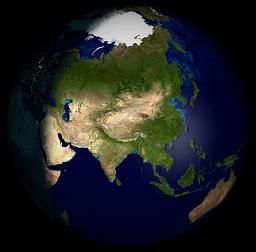WMO: 2014 the hottest year on record
World Meteorological Organization has found that 2014 was the warmest year on record and also concluded that 14 of the 15 warmest years have occurred since 2000

The World Meteorological Organization (WMO) has found that 2014 was the hottest year on record and also concluded that 14 of the 15 warmest years have occurred since 2000.
The findings show that record-breaking heat combined with torrential rainfall in many countries and drought in some others last year and is consistent with recent research on climate change.
The United Nations agency noted that the difference in temperature between the three warmest years, 2014, 2010 and 2005, is only a few hundredths of a degree, less than the margin of uncertainty.
Average global air temperatures over land and sea surface last year were 0.57°C above the long-term average of 14.00°C (57.2°F) for the 1961-1990 reference period.
By comparison, temperatures were 0.55 °C (1.00°F) above average in 2010 and 0.54°C (0.98°F) above average in 2005, according to the findings.
As a result 2014 may not be the warmest year on record but would still ranks high on the list.
The latest WMO findings crucially reveal that there is a significant warming trend and the organisations Secretary-General, Michel Jarraud said: “The overall warming trend is more important than the ranking of an individual year. Analysis is of the datasets indicates that 2014 was nominally the warmest on record, although there is very little difference between the three hottest years. Fourteen of the fifteen hottest years have all been this century. We expect global warming to continue, given that rising levels of greenhouse gases in the atmosphere and the increasing heat content of the oceans are committing us to a warmer future.”
WMO described as “notable” the fact that the high 2014 temperatures occurred in the absence of a fully developed El Nino, a weather phenomenon caused when warmer than average sea-surface temperatures in the eastern tropical Pacific combine with atmospheric pressure systems.
The warmest year before the 21st century occurred in 1998 which was a strong El Nino year.
The WMO analysis is mainly based on three complementary datasets maintained by the Hadley Centre of the UK's Met Office and the Climatic Research Unit, University of East Anglia, United Kingdom (combined); the US National Oceanic and Atmospheric Administration (NOAA) National Climatic Data Centre; and the Goddard Institute of Space Studies (GISS) operated by the National Aeronautics and Space Administration (NASA).
Of the world's leading meteorological organisations, only Japan's agency didn't find 2014 the hottest year on record but declared it the equal hottest with 2010.
Meteorological agencies say that variations in their results are mainly due to the different use of temperature gauges across remote polar regions.
WMO released the analysis ahead of climate change negotiations to be held in Geneva from 8 to 13 February.
The talks in Switzerland will help to pave the way for a global binding climate agreement due to be signed by the Parties to the UN Framework Convention on Climate Change (UNFCCC) in December in Paris.
The final and full report on the Status of the Climate in 2014, with details of regional trends and extreme events, will be available in March 2015.






